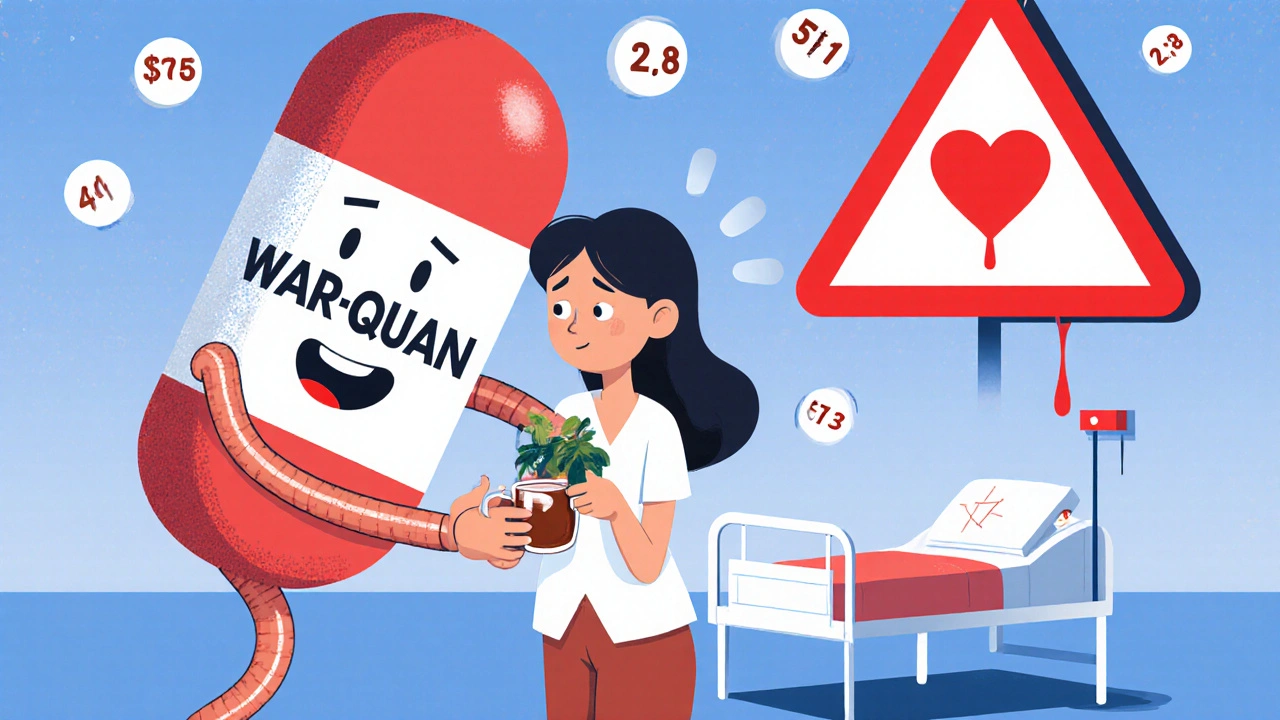Warfarin Supplement Interactions: What You Need to Know
When you take warfarin, a blood thinner used to prevent dangerous clots. Also known as Coumadin, it works by blocking vitamin K’s role in clotting. But what many people don’t realize is that everyday supplements, including vitamins, herbs, and natural products can mess with how warfarin works—sometimes with life-threatening results.
Take vitamin K, a nutrient that helps your blood clot. If you suddenly eat more leafy greens or take a vitamin K supplement, your INR levels can drop, making warfarin less effective. On the flip side, garlic, a common supplement for heart health, or ginkgo biloba, often used for memory, can thin your blood even more, raising your risk of bleeding. Even something as simple as a multivitamin can throw off your balance if it contains hidden vitamin K or other active ingredients.
It’s not just about what you take—it’s about consistency. Your body needs stable levels of vitamin K to keep warfarin working right. Jumping from salads every day to none at all, or starting and stopping herbal supplements without telling your doctor, is how people end up in the ER. Studies show over 30% of warfarin-related hospital visits involve unreported supplement use. That’s why your doctor asks you to list everything you’re taking—not just prescriptions.
You don’t have to give up supplements entirely. But you need to know which ones are safe, which ones to avoid, and how to track changes. Some people take fish oil for heart health and think it’s harmless. But combined with warfarin, it can increase bruising and bleeding. Others use St. John’s wort for mood and don’t realize it speeds up how fast your body breaks down warfarin, making it useless. The same goes for coenzyme Q10, cranberry juice, and even green tea in large amounts.
The good news? You’re not alone. Many people on warfarin manage supplements safely by keeping a simple log: what they take, when they start or stop, and any new symptoms like unusual bruising or bleeding gums. That log becomes your best tool during doctor visits. And if you’re unsure? Always ask. There’s no such thing as a silly question when your blood’s on the line.
Below, you’ll find real, practical guides from people who’ve been there—covering how specific supplements interact with warfarin, what to watch for, and how to talk to your doctor without sounding alarmist. These aren’t theory pieces. They’re clear, no-fluff comparisons and experiences that help you make smarter choices every day.

Dong Quai and Warfarin: What You Need to Know About the Bleeding Risk
Haig Sandavol Oct 30 11Dong Quai can dangerously increase the blood-thinning effects of warfarin, raising the risk of serious bleeding. Learn why this herbal supplement should be avoided if you're on anticoagulant therapy.
More Detail